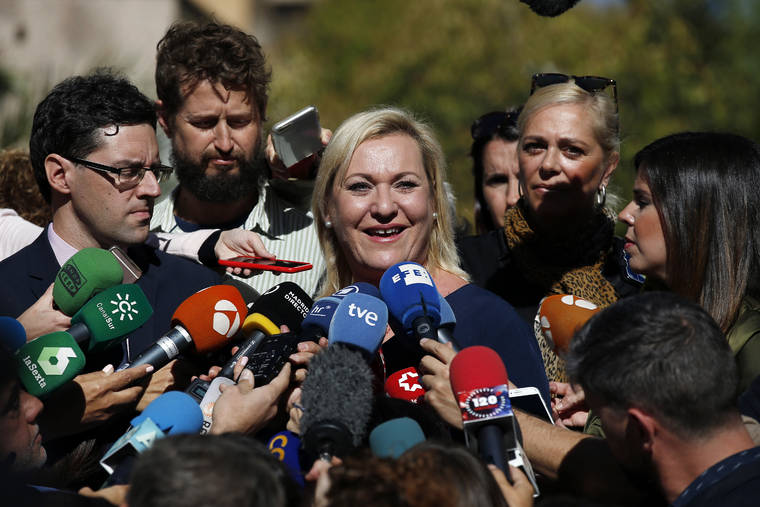BARCELONA, Spain — A woman who became a crusader for babies abducted during Spain’s 20th-century dictatorship said Thursday that she has found her biological family and learned that her mother gave her up voluntarily.
Inés Madrigal said that thanks to an American DNA bank she has found four half siblings five decades after her birth.
“I have four siblings, who are marvelous people and have opened their arms to me,” she told a press conference in Madrid. “At last I have completed the puzzle of my life. Now I know who I am and where I come from.”
Last year a court ruled that gynecologist Eduardo Vela abducted Madrigal in 1969, faking her birth by her adoptive parents and forging official documents, only to clear him because the statute of limitations had expired.
Madrigal now says that her newfound relatives have told her that her mother gave her up willingly.
That revelation appears likely to hurt her chances of getting a verdict against Vela when Spain’s Supreme Court hears her appeal to last year’s ruling at a future date yet to be determined.
The state prosecutor’s office in Madrid issued a statement on Thursday to say that given the new twist in Madrigal’s case it does not consider that she was stolen.
But Madrigal said she remains convinced that Vela broke the law by hiding her true origins.
“He should have registered my birth and he did not do so,” Madrigal said. “He treated me like a puppy. The State never knew I existed.”
Madrigal’s case was Spain’s first to go to trial in the widespread child trafficking that occurred from the onset of the country’s Civil War in 1936 to the death of dictator Gen. Francisco Franco in 1975. Most lawsuits have been rejected by courts for coming after the statute of limitations expired.
Spain only started investigating the stolen babies cases a decade ago, when magistrate Baltasar Garzón opened a probe into the more than 30,000 children that were under the care of the right-wing regime.
Franco’s regime took away the children of poor families, prisoners or political enemies, sometimes stripping women of their newborns by lying and saying they had died during labor. The children were then given to pro-Franco families or the church.
The regime saw the removal of the children as a chance to give them a Catholic upbringing in homes that it considered loyal to its cause and stoutly against what it considered the threat of leftist forces it had crushed in the war.


